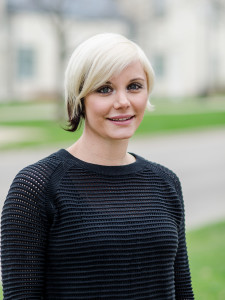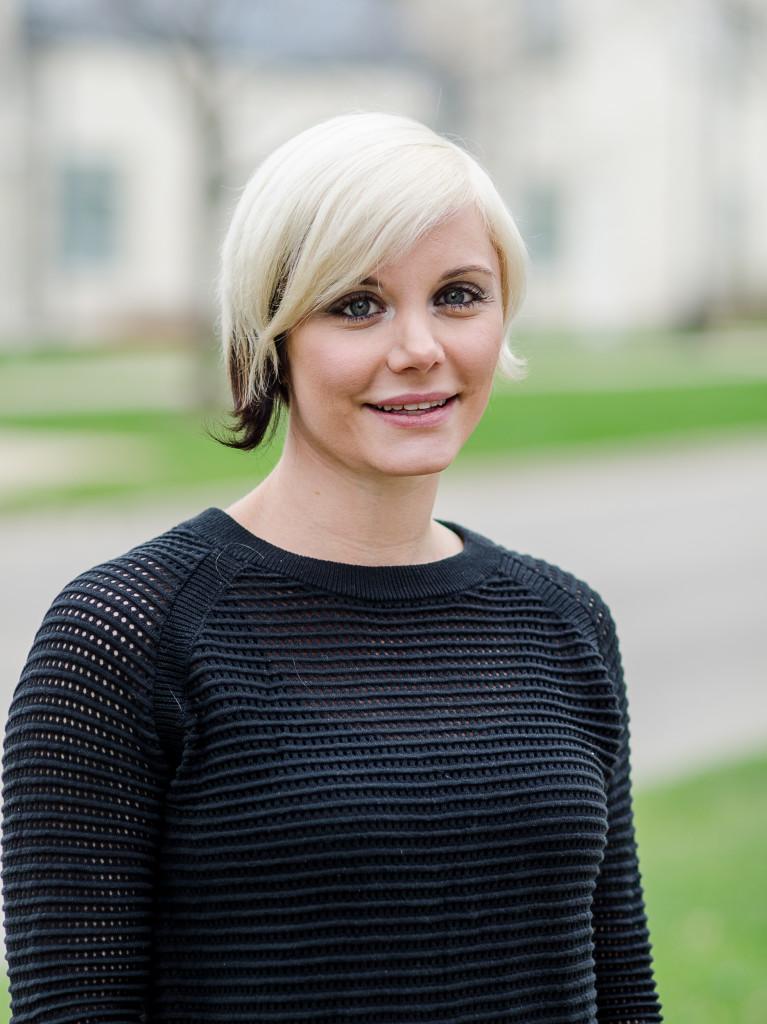
Writers@Grinnell is wrapping up its spring series this Friday afternoon, April 22, with a reading from Grinnell’s very own Alissa Nutting, English. Nutting is best known for her 2013 novel “Tampa,” a book that boldly enters into the mind of a middle school teacher who preys on her young male students. Her work has also appeared in a number of literary magazines and fiction anthologies. Before today’s reading, Nutting sat down with the S&B’s Editor-in-Chief Kelly Pyzik to talk about her latest novel and how she transfers her weirdness to writing.
The S&B: You’ll be reading from your upcoming novel on Friday. Does it have a title yet?
Nutting: We’re still finding it. For a long time it was called “Saving You Saved Me” because my writing is always really dark and I wanted this novel to be uplifting. But then the novel became all about sadness. Like, I would literally say it’s a novel about examining the humor in pain. So, now they’re like, “You need a less hopeful title.” So we’re on the hunt for something more morose right now.
Can you tell me a bit about the book?
It’s about a woman who ends up leaving her husband. He’s a really powerful kind of Steve Jobs-like figure, only way more evil. Because his entire business is technology and surveillance, it proves really, really hard for her to leave him. Then there are other characters who are kind of struggling with relationships in different ways. There’s a con artist, Jasper, who basically gets women to fall in love with him and get engaged to him and loan him money and then he leaves them. Then her elderly father just purchased a doll for companionship. It’s kind of exploring relationships and the different ways that they meet our needs and the ways that they fail to, and what, if any, kind of gaps technology can fill.
What is your writing process like?
I like to hyper-focus on things. … I’m not good at doing anything a little bit. I like to write in big, long chunks. Late at night is my favorite. If I can write five or six hours really late at night when I’m just me, I love it because it’s sort of like life isn’t real, which is one of my favorite feelings. I feel like nothing is going on except what I’m writing, and my writing can feel more real than the actual world. In the daytime it’s harder to pretend because you see it going on all around you. But at night when everything seems asleep and there are no cars, it almost feels like I’m living in what I’m writing.
You’re teaching a short course on writing about shame here at Grinnell. When did you first become interested in shame as a concept?
I guess it emerged out of reflecting upon childhood. I can look back at college and these times when I felt like I was really coming into myself. A lot of my personality was driven by these defense mechanisms against shame. I really started to almost be overly eccentric and do things in an overt manner that other people would find embarrassing. I tried to wear everything I did as this badge of pride, in a kind of misguided way. I feel like your life constantly changes and so the things that you can be shamed for or feel shame about constantly change, so you can never really deal with it in a finished way. It’s more of an ongoing lifestyle, shame.
How did acting over the top defend against shame for you?
I felt like I got to be weird on my own terms. I would sort of put out that I was weird or strange or different, and I did this in high school, too, before other people could. To me, for a while, that felt like the safest way to go through life. Attracting all this attention felt safer than risking somebody else choosing to focus on something that maybe I didn’t get to pick.
How do you deal with shame now?
I think writing has become my shame costume. Whereas before it was literally costumes. I would dress really, really weird or just publicly be or do things that are really weird. Now I save it all for writing.
You talked about getting really obsessed with one thing. I feel like, to write a book like “Tampa” that is very obsessive over sexually predating on young boys, you have to really be in the character’s head. How was it, occupying that headspace?
It was really weird and uncomfortable. Invariably, no matter how different you are from the character, when you’re spending that many hours a day thinking, “Oh, what would this person think?” you begin to feel more like that character than yourself. I would write all day and then I would go meet a friend out somewhere for dinner and a cop would walk in the restaurant and all the blood would drain from my face. I would be like, “I’m about to get arrested.” It would actually take me a second to realize I hadn’t done anything, I’d just been in my house writing all day. … The character is sort of this flippant, sarcastic person and I think that if I hadn’t been able to use sarcasm and humor in that book … That was the only way I could do it.



















































